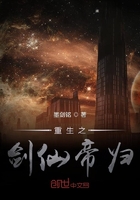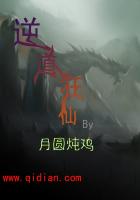"It was upon Einsiedel's poor Garrison, leaving Prag in such haste, that the real stress of the retreat fell; its difficulties great indeed, and its losses great. Einsiedel did what was possible;but all things are not possible on a week's warning. He spiked great guns, shook endless hundredweights of powder, and 10,000stand of arms, into the River; he requisitioned horses, oxen, without number; put mines under the bastions, almost none of which went off with effect. He kept Prag accurately shut, the Praguers accurately in the dark; took his measures prudently; and labored night and day. One measure I note of him: stringent Proclamation to the inhabitants of Prag, 'Provision yourselves for three months;nothing but starvation ahead otherwise.' Alas, we are to stand a fourth siege, then? say the Praguers. But where are provisions to be had? At such and such places; from the Royal Magazines only, if you bring a certificate and ready money! Whereby Einsiedel got delivered of his meal-magazine, for one thing. But his difficulties otherwise were immense.
"On the Thursday morning, 26th November, 1744, he marched.
His wagons had begun the night before; and went all night, rumbling continuous (Anonymous of Prag [Second "LETTER from a Citizen, &c."(date, 27th November, see supra, p. 348), in <italic> Helden-Geschichte, <end italic> ii. 1181-1188.] hearing them well), through the Karlthor, northwest gate of Prag, across the Moldau Rridge. All night across that bridge,--Leitmeritz road, great road to the northwest:--followed finally by the march of horse and foot.
But news had already fled abroad. Five hundred Pandours were in the City, backed by the Butchers' lads and other riotous GESINDEL, before the rear-guard got away. Sad tugging and wriggling in consequence, much firing from windows, and uproarious chaos;--so that Rothenburg had at last to remount a couple of guns, and blow it off with case-shot. A drilled Prussian rear-guard struggling, with stern composure, through a real bit of burning chaos.
With effect, though not without difficulty. Here is the scene on the Noldau Bridge, and past that high Hradschin [Old Palace of the Bohemian Kings (pronounce RADsheen); one of the steepest Royal Sites in the world.] mass of buildings; all Prag, not the Hradschin only, struggling to give us fatal farewell if it durst. River is covered with Pandours firing out of boats; Bridge encumbered to impassability by forsaken wagons, the drivers of which had cut traces and run; shot comes overhead from the Hradschin on our left, much shot, infinite tumult all round; thoroughfare impossible for two-wheeled vehicle, or men in rank. 'Halt!' cries Colonel Brandes, who has charge of the thing; divides them in three: 'First one party, deal with these river-boats, that Pandour doggery;second party, pull these stray wagons to right and left, ****** the way clear; third party, drag our own wagons forward, shoulder to shaft, and yoke them out of shot-range;--you, Captain Carlowitz,'
and calls twenty volunteers to go with Carlowitz, and drag their own cannon, 'step you forward, keep the gate of that Hradschin till we all pass!' In this manner, rapid, hard of stroke, clear-headed and with stern regularity, drilled talent gets the burning Nessus'-shirt wriggled off; and tramps successfully forth with its baggages. About 11 A.M., this rearguard of Brandes's did; should have been at seven,--right well that it could be at all.
"Einsiedel, after this, got tolerably well to Leitmeritz; left his heavy baggage there; then turned at an acute angle right eastward, towards the Silesian Combs, as ordered: still a good seventy miles to do, and the weather getting snowy and the days towards their shortest. Worse still; old Weissenfels, now in Prag with his Saxons, is aware that Einsiedel, before ending, will touch on a wild high-lying corner of the Lausitz which is Saxon Country;and thitherward Weissenfels has despatched Chevalier de Saxe (in plenty of time, November 29th), with horse and foot, to waylay Einsiedel, and block the entrance of the Silesian Mountains for him. Whereupon, in the latter end of his long march, and almost within sight of home, ensues the hardest brush of all for Einsiedel. And, in the desolation of that rugged Hill country of the Lausitz, 'HOCHWALD (Upper Weld),' twenty or more miles from Bohemian Friedland, from his entrance on the Mountain Barrier and Silesian Combs, there are scenes--which gave rise to a Court-Martial before long. For unexpectedly, on the winter afternoon (December 9th), Einsiedel, struggling among the snows and pathless Hills, comes upon Chevalier de Saxe and his Saxon Detachment,--intrenched with trees, snow-redoubts, and a hollow bog dividing us;plainly unassailable;--and stands there, without covering, without 'food, fire, or salt,' says one Eye-witness, 'for the space of fourteen hours.' Gazing gloomily into it, exchanging a few shots, uncertain what more to do; the much-dubitating Einsiedel. 'At which the men were so disgusted and enraged, they deserted [the foreign part of them, I fancy] in groups at a time,' says the above Eye-witness. Not to think what became of the equipments, baggage-wagons, sick-wagons:--too evident Einsiedel's loss, in all kinds, was very considerable. Nassau, despatched by Leopold out of Glatz, from the other side of the Combs, is marching to help Einsiedel;--who knows, at this moment, where or whitherward? For the peasants are all against us; our very guides desert, and become spies.















